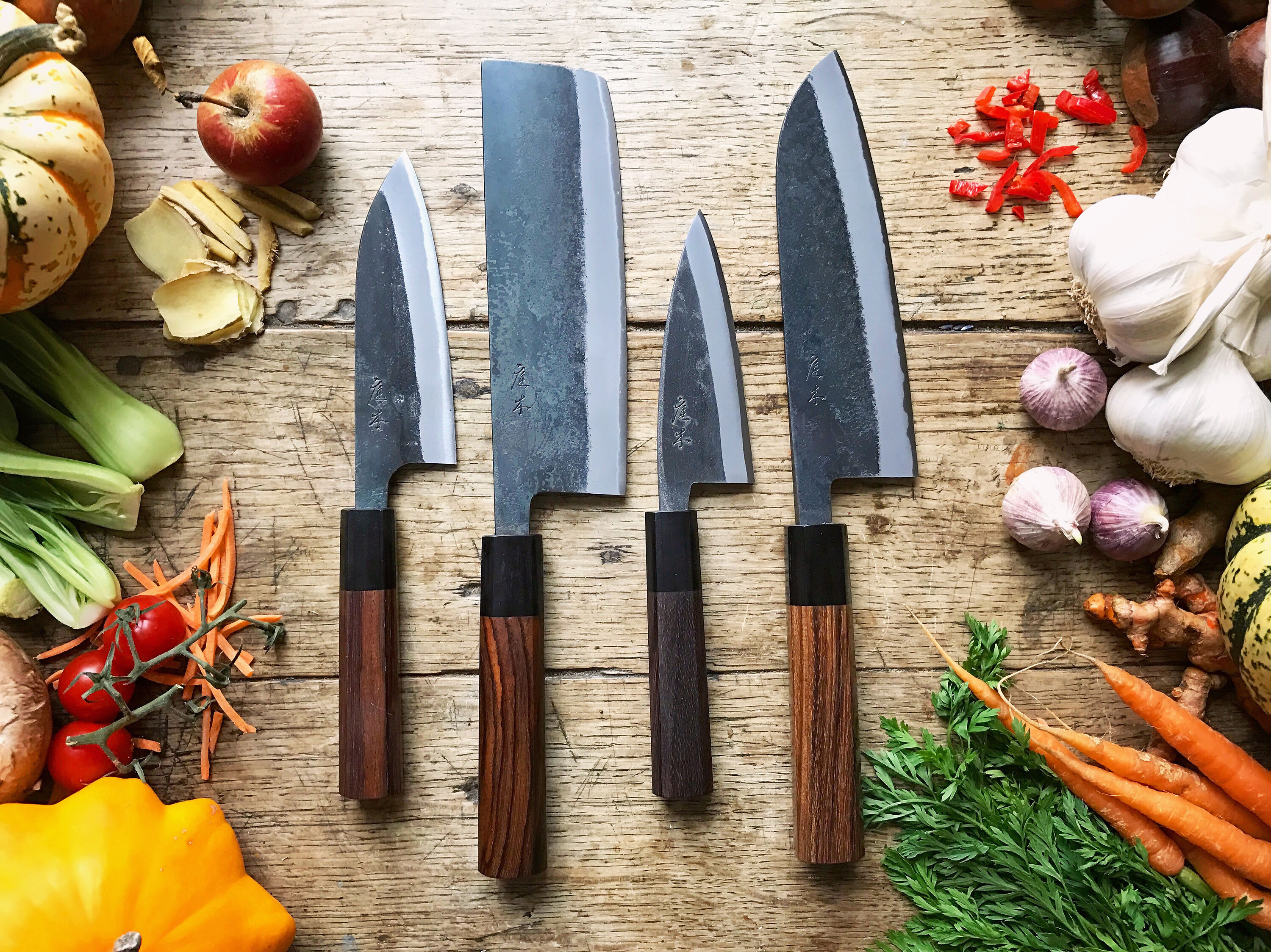Image Source: Google
Japanese kitchen knives are renowned for their exceptional quality, precision, and craftsmanship. These knives are not just tools for cutting ingredients; they are an essential part of a chef's arsenal that can elevate your culinary skills to new heights. If you're serious about cooking and want to take your dishes to the next level, investing in a Japanese kitchen knife is a must. Let's explore the magic of Japanese kitchen knives and how they can transform your cooking experience. If you want to buy the Japanese Kitchen Knives then, you may naviagte to this site.
The History and Tradition of Japanese Kitchen Knives
Origins
- Japanese kitchen knives have a long history that dates back to the days of the samurai.
- Each region in Japan has its own unique knife-making traditions and techniques.
- The craftsmanship and attention to detail that go into making Japanese knives are unparalleled.
Types of Japanese Kitchen Knives
- Gyuto: The Japanese equivalent of a chef's knife, versatile and suitable for various cutting tasks.
- Santoku: A multipurpose knife ideal for slicing, dicing, and mincing.
- Deba: A heavy-duty knife used for filleting fish and butchering meat.
- Usuba: A traditional vegetable knife with a thin blade for precise cuts.
The Superior Quality of Japanese Kitchen Knives
Materials
- Japanese knives are typically made of high-carbon steel, which allows for a sharper edge and better edge retention.
- The quality of the steel used in Japanese knives ensures durability and longevity.
- Damascus steel is often used in Japanese knives, creating a beautiful and unique pattern on the blade.
Craftsmanship
- Japanese knife makers are highly skilled artisans who follow traditional techniques passed down through generations.
- The meticulous craftsmanship involved in making Japanese knives results in superior sharpness and precision.
- Hand-forged knives are crafted with care and attention to detail, making each knife a work of art.
The Benefits of Using Japanese Kitchen Knives
Sharper Blades
- Japanese knives are known for their razor-sharp blades that can make clean and precise cuts effortlessly.
- A sharp knife not only makes cooking more efficient but also ensures the integrity and flavor of your ingredients.
- With a sharp Japanese knife, you'll experience less resistance when cutting, reducing the risk of accidents.
Precision and Control
- The thin and lightweight blades of Japanese knives offer greater control and precision during food preparation.
- You can achieve intricate cuts and delicate slices with ease, enhancing the presentation of your dishes.
- Whether you're slicing sashimi or julienning vegetables, Japanese knives provide the control you need for professional results.
Efficiency and Comfort
- Japanese knives are designed to be ergonomic, providing comfort during extended periods of use in the kitchen.
- The efficiency of a well-balanced Japanese knife can make meal preparation faster and more enjoyable.
- With a Japanese knife in hand, you'll feel the difference in both the ease of use and the quality of your cooking.
Caring for Your Japanese Kitchen Knives
Proper Storage
- Store your Japanese knives in a knife block, on a magnetic strip, or in a knife sheath to protect the blade and prevent accidents.
- Avoid storing knives in a drawer where they can get dull or damaged by other utensils.
Regular Maintenance
- Keep your Japanese knives clean and dry to prevent rust and corrosion.
- Regularly sharpen your knives with a whetstone or have them professionally sharpened to maintain their sharpness.
- Handle your knives with care and avoid cutting on hard surfaces like glass or ceramic to prevent chipping.
Professional Sharpening
- If you're unsure about sharpening your Japanese knives yourself, consider taking them to a professional sharpener for expert care.
- A professional sharpening service can restore your knives to their original sharpness and prolong their lifespan.
- Investing in professional sharpening for your Japanese knives is worth it to preserve their quality and performance.
Conclusion
Japanese kitchen knives are not just tools; they are a reflection of centuries-old craftsmanship and tradition. Investing in a Japanese knife can elevate your culinary skills and transform your cooking experience. From the superior quality of the materials to the precision and control they offer, Japanese knives are in a league of their own. Take care of your Japanese knives, and they will reward you with exceptional performance and longevity in the kitchen.


